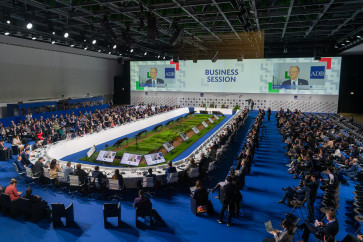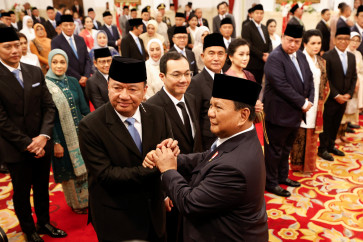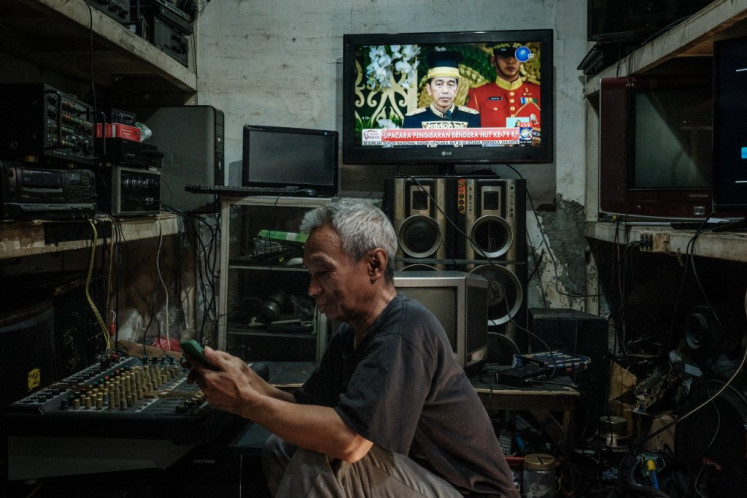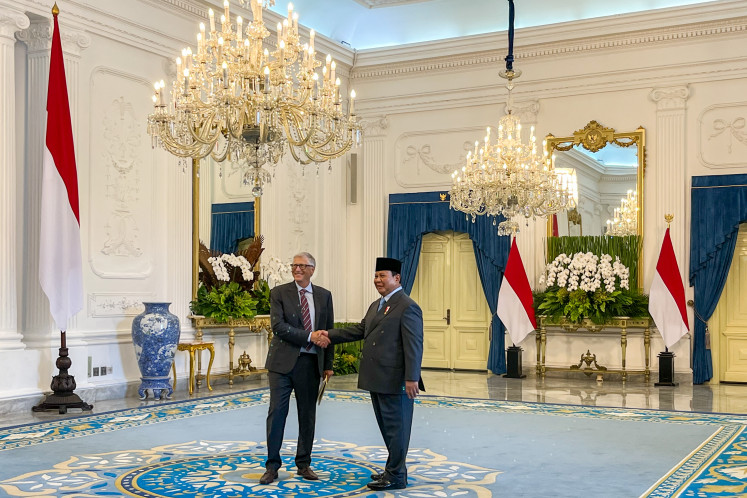Handmade soaps remind you of family heritage
Heritage ingredients: Dewi Bonita (right) and Febe Riri of Kin Soap make handmade soaps in their South Jakarta workshop using herbs, fruits and other ingredients inspired by their Indonesian family heritage
Change text size
Gift Premium Articles
to Anyone

H
eritage ingredients: Dewi Bonita (right) and Febe Riri of Kin Soap make handmade soaps in their South Jakarta workshop using herbs, fruits and other ingredients inspired by their Indonesian family heritage. (JP/Arief Suhardiman)
In keeping with “back to nature” trends, many people prefer to use handmade soap bars as opposed to industrial soaps, which are mass produced and contain many chemicals.
This trend is helping many local handmade soap makers to develop their businesses in Indonesia, in particular in Jakarta. One of them is Kin Soap. The brand was established, along with its South Jakarta workshop, in May 2019 by former advertising executive Dewi Bonita and her colleague Febe Riri, a former lifestyle magazine writer.
According to Dewi, the brand currently manufactures soaps in 19 different fragrances and colors but their most popular variants include Indonesia’s very own native skincare favorites like the feminine-toned lulur (body scrub made of herbal materials) and the more masculine-toned cloves and coffee. Also available is the air beras (rice water), another Indonesian skincare favorite.
Dewi and Febe make the soaps in their workshop using oil and natrium hydroxide, raw materials that they order from the online shop Tokopedia. Then, they will prepare the raw materials using herbs, vegetables, fruits and beans, the sources of their soaps’ colors and scents, which they process using a blender.
They wait for four to six weeks for the soaps to be ready for sale to customers, most of whom order the soaps online.
Currently, they produce 50 to 100 soap bars per day to cater to orders from Jakarta and its satellite cities, as well as those coming from customers living as far as Bali.
Most Indonesians and Westerners like the indigenous soap variants, according to Dewi, although Indonesian youngsters also love their sweet-smelling watermelon variant, which looks exactly like a watermelon, because it appears cute.
Besides the local cloves variant, men also love their alcohol soaps, giving them a more masculine scent, which Dewi and Febe make using liquor.
Dewi said she learned how to make her own soaps for the first time when she was studying in the United States in 2008. She abandoned the pursuit for a while upon returning to Indonesia, but in 2016, her infant suddenly had dry skin and she had a hard time finding industrialized soaps that could help her infant heal.
She decided to take some courses on soap making again in 2016, to refresh her memory, and learned which ingredients she could use to help cure her infant’s dry skin problem. “I decided to make one using oatmeal [the granules of which can help the skin get rid of dead cells] and several types of milk — butter, coconut and goat — to help moisturize my infant’s skin,” she said.
From then she started receiving requests from her other family members to make certain types of soap bars, which reminded them of the good old days growing up at a time when liquid soaps were not that popular.
“For instance, my older brother asked me to make a coffee variant, because he likes the smell but it turns out that the coffee ground feels good on his skin,” Dewi said, adding this was how she came to name the brand Kin Soap since most of the original variants have come to be developed via requests from her family members.
“The lulur one, for instance, is my grandma’s favorite, since she applies it every day,” she added.
The advantage of making handmade soaps lies in using fewer chemicals and artificial colorings/fragrances, not to mention that the herbal materials are used based on their skincare functions.
“For instance, the beer soap can produce lots of foam, necessary to manage our skin’s bacteria,” Dewi said.
Febe, meanwhile, said environmentally speaking, the industrial waste of handmade soaps was safer, thanks to the minimum amount of chemicals used.









